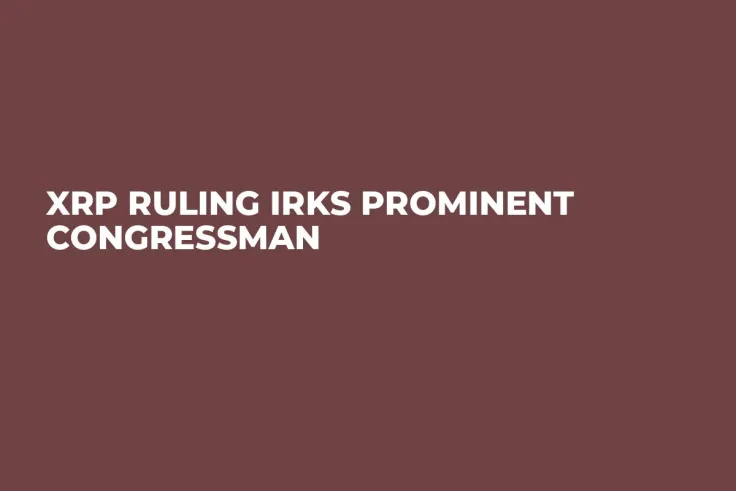A recent ruling on the Ripple case, which declared the cryptocurrency XRP as "sometimes a security and sometimes not," has drawn sharp criticism from Congressman Brad Sherman.
Known as one of the most vocal critics of cryptocurrency within Congress, Sherman labeled the verdict "ridiculous" during a Wednesday congressional hearing.
This condemnation comes as part of Sherman's broader critique of the crypto industry, which he has frequently associated with illegal activities and financial impropriety.
In the same hearing, Sherman expressed his views on the purpose of cryptocurrencies, arguing that they primarily serve those looking to commit fraud or evade taxes. He warned against the illicit uses of cryptocurrency, highlighting concerns about human trafficking, sanction violations, and tax fraud.
According to Sherman, the very term "cryptocurrency" implies hidden money, which becomes inferior to even the Uruguayan peso once its hidden aspect is removed.
These comments reflect Sherman's continued hard-line stance against digital currencies. In a recent CNBC interview, the Congressman was asked whether the ongoing regulatory actions signaled the end of cryptocurrencies in America. "I hope so, don't think so," was his succinct response.
In the meantime, the Securities and Exchange Commission (SEC) is considering an appeal to the Ripple ruling, which it believes contravenes existing securities laws.
The SEC argues that the verdict creates an artificial distinction between the expectations of sophisticated institutional and retail investors, thus undermining the traditional test for determining when assets are securities, known as the Howey Test.



 Dan Burgin
Dan Burgin Vladislav Sopov
Vladislav Sopov